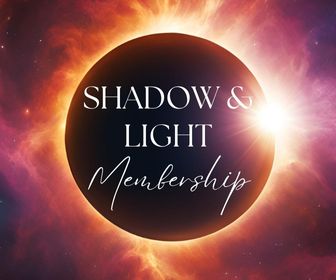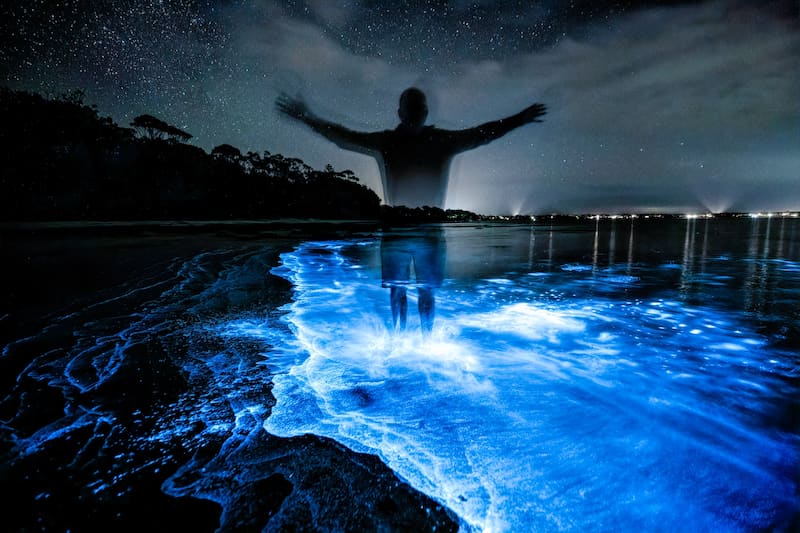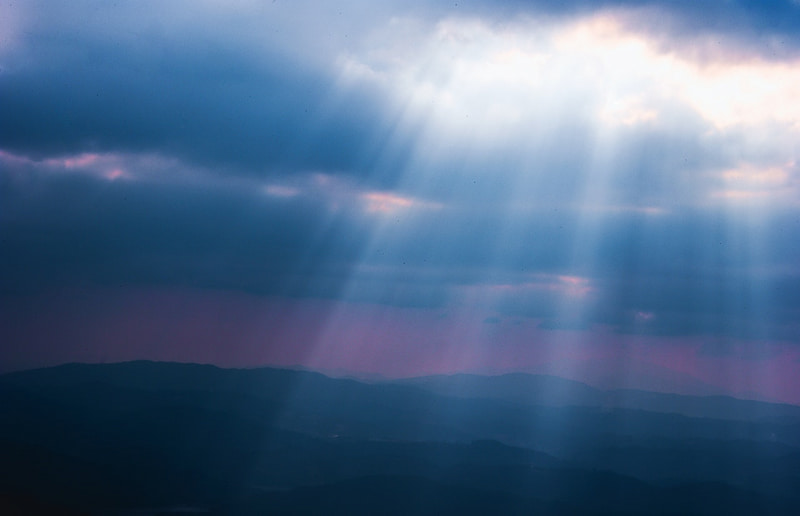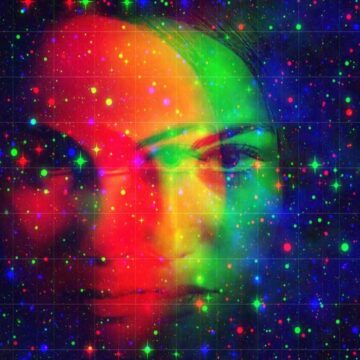Now, here’s the thing: I’m not a zen practitioner, nor do I necessarily write for an audience of zen enthusiasts (however, if you are one, that’s awesome!). But there’s a certain term that is quite unknown at the time of writing, which I hope comes more into the mainstream:
Makyo.
If you’re a sincere spiritual practitioner interested in truth over illusion, makyo is a term you need to familiarize yourself with.

Spiritual Wanderer Course:
Being a lone wolf and a spiritual wanderer is a sacred calling in life – a unique and alchemical path of awakening. You don’t need to feel lost, alone, or stuck on your journey any more. It’s time to meet your soul’s deep needs for clarity, self-acceptance, and empowerment. Let us show you how …
If your focus on the spiritual awakening path is to find that which is abiding, doesn’t come and go, and is the ever-present silence beneath the noise – in other words, that which is your True Nature – you’re in luck. Learning about makyo can help tremendously.
On the other hand, if you’re into stuff like crystals, angels, cosmic downloads, achieving special states of altered consciousness, and so on, that’s fine, but this article might be a bit confronting or irrelevant to you at this point on your journey.
Table of contents
What is Makyo?

Makyo (or Makyō) is a term in the Zen tradition that refers to the spiritual delusion of clinging and attaching to the mental phenomena that come up during practices like meditation.
The problem with taking special interest in the various hallucinations and visions that arise in our spiritual practice, according to ancient Zen philosophy, is that it causes us to delude ourselves into believing that we’re extra special or have even reached an enlightened state of consciousness. Such assumptions can easily produce a kind of ego inflation that results in problems like spiritual narcissism and spiritual materialism.
In the words of John Daido Loori, who was the abbot of Zen Mountain Monastery,
Sometimes during sitting people have what we call makyo: a vision or hallucination. Other times it’s a smell or sound. Students often think this means they’re enlightened–particularly if the image is related to Zen, like the Buddha sitting on a golden lotus–and they immediately run off to dokusan (a private interview with one’s teacher) to get it confirmed. The teacher will usually listen and then say something like, “Maybe you’re not sitting straight. Sit straight. Don’t worry, it will go away.” It doesn’t matter whether we attach to a regular thought, or to the thought of enlightenment. Whatever it is, it is still attachment.
(Text in brackets my own)
Why Makyo Can Feel Like a Bitch Slap

As we can see, makyo is all about attachment, and in particular, spiritual attachment, which is a trap and pitfall that we can easily fall into on the spiritual path, especially in the West, where being unique and important is seen as a badge of success and honor.

Shadow & Light Membership:
⭐️⭐️⭐️⭐️⭐ "Shadow and Light’s weekly guidance always rings true to my heart. Thanks for acknowledging my shadows and inviting my inner light. I always get excited to open the Shadow and Light emails on Sunday!" – Angela M.
The irony is that the moment the ego, the “me” starts fixating on a special experience – maybe a vision of an ascended master or an experience of clairaudience – the moment it has appropriated spirituality for its own benefit, that is, to feel special and separate.
And as we know, the ego is at the root of our suffering.
Of course, it’s important to acknowledge that on a human subjective level, we are special. We all have our own gifts, talents, and aptitudes that differentiate us from others. I’m not denying that.
But on a deeper level, the level that precedes the ego, the realm of Spirit or Consciousness, attachment to any experience that reinforces the ego is a distraction and delusion.
Does the concept of makyo feel like a bitch slap yet?
Makyo is a term and core philosophy that essentially says,
“Hey there! Remember all that amazing stuff you experience during meditation or on retreat – and all those visions of angels, past life recalls, and psychedelic fantasies? Yeah … well, they’re ultimately irrelevant. They’re just experiences that come and go. They’re passing mental phenomena. If you want to find out who you truly are, don’t be attached to them. Okay?”
The Good and the Bad News About Makyo

The good news about makyo is that if, for some reason, you find yourself here on this spiritual path and you do not have special experiences, that’s okay.
Suppose you don’t have amazing visions, lucid dreams, messages from spirit guides, kundalini awakening, extrasensory gifts – and all that jazz … oh well! In reality, none of that stuff matters in the end. It can be helpful and illuminating to have some of these experiences, don’t get me wrong. But if your priority on the spiritual path is to awaken to your True Nature and experience the truth of reality, all that stuff is basically irrelevant.
Certainly, having ascended beings give you special messages might feel funky. It might continue to motivate you, keep you engaged in the spiritual search, or externalize disowned internal guidance in a magical way. But at the end of the day, if you’re not having any of these special experiences, it doesn’t ultimately matter.
That’s the good news – it’s a relief to know that special-looking experiences aren’t ultimately important when all is said and done! So you can drop that burden from your shoulders. You don’t need to keep up with the “in crowd” of “super-special-spiritual people” anymore. Phew!
Would you like to save this?
Your information will never be shared.
The bad news is that if you do, for some reason, identify with the super-special-spiritual people crowd and have had a lot of amazing spiritual experiences with which you’re strongly identified, the concept of makyo may inevitably feel threatening.
In reality, there is no “good or bad” news here; that’s just a black-and-white labeling of the mind. Maybe “comfortable and uncomfortable” is better to use here.
So the uncomfortable news is that if you’re interested in going beyond these spiritual experiences and labels and finding out who you truly are, you’ve got to drop your attachment to all the stuff that makes you feel extra special and elevated.
And let’s be honest here; there’s a lot of spiritual ego on the spiritual path. I’ve experienced it. You’ve experienced it. We’ve all experienced it.
Crisp and cutting truth is of utmost importance here. Reflect on whether you’re interested in what is true or whether you’re interested in continuing to live under the spell of the mind that has used spirituality to reinforce the very thing authentic spirituality is out to dismantle: the ego. Either way is fine – that’s just how life is choosing to live itself.
11 Examples of Makyo

In Zen, hallucinations are called makyo. It is not unusual for practitioners sitting in meditation for long periods of time to experience makyo. Some people feel like they are levitating, others see visions of the Buddha bathed in light, some hear sounds or voices. This in itself is not a problem. The problem arises when we confuse these experiences with enlightenment … In other words, don’t attach to it.
— Daido Loori Roshi
Let’s get practical here and explore some common examples of makyo that people tend to attach to:
- Receiving “cosmic downloads” or “energetic frequency activations.”
- Visions from a past life or lives.
- Meeting a spirit guide/ascended master/ancestor in one’s dreams or meditations.
- Extraordinary visions or experiences that one has during psychedelics and plant medicines.
- Seeing otherworldly lights, colors, and geometric patterns.
- Visions of angels, aliens, or beings from other realms.
- Experiences of clairvoyance, clairaudience, clairsentience, claircognizance.
- Uncanny “special” messages that one receives during various forms of divination like tarot, pendulum, and automatic writing.
- Hearing sacred names, voices, or conversations.
- Unusual supernatural experiences related to “twin flame” or “soul mate” union.
- Kundalini awakening inspired visions.
If you have any other examples of makyo to add, leave a comment and let me know!
Read more about sneaky spiritual traps.
What to Do With Spiritual Visions, Then?

As we can see, makyo usually emerges from spiritual visions such as an unhealed past life trauma or messages from spirit beings that we then attach to and use to reinforce our egos.
The point of makyo isn’t to say that you should totally ignore special spiritual experiences. If you feel the need to heal some trauma that a spiritual experience has revealed, by all means, do it!
If a spiritual vision gives you comfort, that’s wonderful. Enjoy that comfort and reassurance as much as you can. We all need help during difficult times, and spiritual visions can frequently offer a light in the darkness.
Also, if a spiritual vision or experience gives you helpful guidance and clarity, that’s fantastic. Listen to it and make life adjustments.
But at the end of the day, don’t attach to any of these mental/spiritual phenomena. Don’t make any of it into something that reinforces your ego. Don’t add it to the never-ending smorgasbord of “special spiritual person” titles that we all tend to accumulate.
And if you do, do it consciously. Know that these labels and experiences can never define who you truly are. Wear them like a cloak that can easily be taken on and off.
Remember that the point of spirituality is to unlearn more than learn – to let go more than accumulate. “To die before you die, and find that there is no death,” in the words of Eckhart Tolle. Or, in the words of the sacred text of the Tao Te Ching (verse 48),
In pursuit of knowledge,
every day something is added.
In the practice of the Tao,
every day something is dropped.
How to Avoid Spiritual Delusion (Makyo)

Avoiding spiritual delusion is at the heart of practicing spiritual discernment, which is the sword we carry on our paths to cut through the ample BS that often comes our way.

Inner Work Journal Bundle:
Ready to take your spiritual practice to new depths? Our highly-rated set of guided inner work journals leads you step-by-step through processing trauma, transmuting pain into power, and finding transformation through deep healing and self-illumination.
I’ve been subject to a lot of makyo on my path, and I probably still will be because I’m both human and divine. Here’s what I’ve learned so far on how to avoid spiritual delusion:
- Make truth your top priority – Prize self-honesty above all else. When you’re willing to be wrong, when truth is more important to you than being right, then there is humility and the authentic possibility of growth and Self-realization.
- Practice shadow work – Be willing to look in the places that you avoid internally. What makes you reactive? What triggers you and why? What negative qualities are you projecting onto others and disowning within yourself? Find this out. Our Shadow Work Journal can help.
- Ask others for their input (or pay attention to what they point out!) – Having a private and discerning spiritual teacher who can point out where you’re going wrong isn’t accessible to most people in the West. So, instead, ask trusted friends and loved ones for their input. Ask where you might be deluding yourself. But in reality, all you often need to do is notice what people say about you or how they react to your behavior. Do you push back against you? What flaws do they point out? What criticism do they have? Listen up and take it all on board. Don’t delude yourself into being the “untouchable spiritual person who has it all figured out” because that’s a lie.
- Get a therapist or a grounded spiritual guide – If getting a therapist or guide is reasonable and accessible to you, do it! You’ll likely find that it’s one of the most illuminating experiences to have your behavior mirrored back to you in a safe container. Talk with the therapist or guide, notice their feedback, and take time to integrate it into your spiritual path. If you want an accessible and ongoing form of shadow work support on your journey, you might be interested in our weekly Shadow & Light Membership.
If you have any other recommendations, I’d love to hear them below in the comments!
Makyo Q&A
Here are some further questions and answers about makyo that might be of help:
Yes. Any kind of passing experience, no matter how mystical or special feeling, is makyo and it’s normal to have them.
You’re not doing anything wrong if you experience makyo. Psychedelic imagery, out-of-body trance states, transcendent visions, and other extraordinary states are commonly experienced during spiritual practices. Even clinging to and identifying with a special spiritual experience is a normal human tendency. Just remember to practice discernment and always stay grounded. Experiences are just experiences, after all.
You don’t have to change your spiritual path unless you feel called to do so. In a strictly zen and nondual transcendent spirituality sense, any unusual imagery that comes up is beside the point and irrelevant. But that doesn’t mean that modalities that focus on healing and empowerment on the human level through special experiences aren’t valuable. They are! True integrated spirituality is integral, non-dual, or “not two” in the sense that it embraces many paths, flavors, and colors on the spiritual spectrum and sees their inherent place and value. Just be careful not to use such experiences as a way of inflating your ego, gaining a savior complex, or living in a state of self-reinforced delusion. Wear all labels and experiences like a cloak that can easily be taken on and off.
Final Words
Makyo is a word that literally means “realm of demons/monsters” in Japanese, and I love this imagery because it shows how important this concept is and how it ties in with the practice of shadow work.
Attaching to any experience, no matter how magical or enlightening, has the possibility of keeping us stuck in the realm of demons and monsters, aka., the domain of the ego that is the source of all division, hatred, and violence in this world.
However, with honesty, sincerity, and a commitment to discovering who we truly are beyond passing experience, we can move out of this snare and find the ever-present freedom, clarity, and peace that is our birthright.
What’s your experience with makyo? I’d love to hear below in the comments!
If you need more help, we offer 3 powerful ways to guide you on your inner journey:
1. The Spiritual Wanderer Course: Feeling lost or uncertain about your path and purpose in life? Gain clarity and focus by learning about the five archetypes of awakening within you. Discover your deeper path and purpose using our in-depth psychospiritual map. Includes 3+ hours of audio-visual content, workbooks, meditations, and a premium test.
2. Shadow & Light Membership: Seeking ongoing support for your spiritual journey? Receive weekly intuitive guidance and learn to embrace your whole self, including your shadow side. Deepen your self-love and receive personal support from us.
3. Spiritual Awakening Bundle: Ready to soul search and dive deep? Access our complete "essentials" collection of beloved journals and eBooks. Includes five enlightening eBooks and seven guided journals, plus two special bonuses to further illuminate your path.







This is yet another great post. As people deepen their practice, this seems like good guidance. I equate makyo to the ‘siddhis’ in yoga… powers that come with deepening awareness of the vastness of consciousness. And my understanding is that yoga views this as another level of distraction from achieving stability in the experience of samadhi. Is that correct?
Hi Tony,
I’m not familiar with deep yoga philosophy, so I can’t answer your question. But they do sound similar. Thank you for your kind compliment. ♡
This is very enlightening for me, as a light worker and spiritual guide. I really love this message and I’m processing it now. I’m a big proponent of “surrendering attachments” and the ego (when it doesn’t serve us). So, this is huge. Thanks for sharing this.
I’m always looking to challenge myself and my beliefs. So, this is a very interesting perspective and one that feels more aligned than not.
Thanks so much for sharing that, Tania! I appreciate you and your approach 🌷
Thank you for this article and clear reminder that ego loves to attach to anything that elevates our sense of ‘special being’. This is helpful for me as recently having Cranio Sacral Therapy sessions for trauma. In a deeper state of relaxation, I received a vision and began to recall a past life experience which I connected to my present trauma. I also heard a voice that reassured me I wasn’t alone and introduced as ‘higher beings’. All the experiences took place during CST and a complete surprise and produced overwhelming range of emotions. My therapist confirmed that this often happens when clients are in deep relaxation and reassured to go with it but not necessarily to make too much of it. I found this experience confusing and fascinating and haven’t felt able to talk about it with friends. I did a little bit of research and tried automatic writing and using pendulum to try to find out more. And then realised that ego drives that strong urge to process what happened and to have another encounter. My last CST was me trying not to have expectations about what may happen but to simply let go in the moment. Have to admit that I (ego) felt disappointed as there was nothing dramatic happening – nothing to report to the therapist. The I struggled with the thought that I had wanted to fulfil an expectation that my therapist may have had also and this made me realise how easy it is to fall into this trap. I’m now taking a break from CST as conscious that my expectations of spiritual experiences and attachment to certain outcomes feels more like a pressure and therefore a barrier to healing.
It’s awesome that you became aware of the tendency to seek for a special experience, Susan. I’ve often found myself taking a break from certain modalities particularly when I feel my ego starting to get highly activated. Sending big hugs 🤗
I love how grounding this all is, I think more than ever during these crazy times of confusion, misinformation and spiritual trends bombarding us from every direction, we need to stay grounded and come back to ourselves and the truth of who we are….thank you for bringing awareness to this, it is very helpful.
Yes, I appreciate that Beth. I strongly feel that we need to be more grounded and embodied in down-to-earth spiritual awareness than being up in the clouds in some kind of dissociative escapist spirituality. Much love ♡
Thank you for bringing this up. I was becoming frustrated by this and confused about feeling this way. 🙏🏼
It’s a pleasure to help Anisa 💚
Totally agree!
I find this “illusion” very common in Christian circles as well (I was a fundamentalist for most of my life).
For so many, it’s all about revelations from God, prophesies, miraculous healing and events etc. The validity of your faith and worth to God is measured in these things.
It’s destructive power is horrific, and sadly, for those caught in the trap, they become addicted 😢
It saddens me to see it happening in all forms of spiritual pursuit.
Thanks for sharing, Jim. Yes, makyo is present in all spiritual and religious circles, and it is quite saddening (and frustrating!). But it’s also an opportunity to develop more discernment and awareness. May we all find that inner Light, without all the baggage 🌅
It’s a very good but also very painful message. That yes these spiritual things happen however it is a regular part of existence instead of magical spiritual ego boosting stuff. I struggle with Makyo very often myself…I guess it is hard to know I am just a human after the phenomena. Thank you for this great article.
Thank you for sharing that, Lala. I really appreciate your vulnerability 💗
I resonate totally with you. Thank you for your words of wisdom. They are beautiful and true.
Love,
Stephan
Thank you Stephan 💜
I have had plenty of this during my meditation but always took it as personal encouragement and healing. I never spoke much to others about it as it was intimate and holy and not for others. I have had to leave that group and associated practices because of the spiritual delusions some of the long term practitioners. I had been projecting the the love I felt within the meditation on them rather than understanding it was my own ground of being I was accessing. Note I know, I feel peace and no need to be anyone but myself and no need to chase spiritual tabbies on any other terms. I can just be myself. A body and a mind connected to my spiritual ground where life can arise however it wishes, and duality is as god a place to be as any other so called “spiritual” State of mind.
So beautiful. Thank you for sharing this Daniel 💖
I would not have it implied that anything we encounter is necessarily delusion. My personal rule is that there is no fantasy world or real world. These divisions only truly apply to words and thoughts, not sensory input, at which point the case is not as relevant as whether it bothers me or not.
In a state of panic, I renounced psychic powers a long time ago, fearing the universe would not take them from me. For all I understood, it did. I came to regret their absence, feeling spiritually disconnected and wished to develop an appropriate relationship with what I sensed.
Basic things justify more advanced concepts and not the other way around. Pressures to go outside of ourselves should be given clarity, and if we cannot find clarity for ourselves, yes, we should definitely find a guide we can trust.